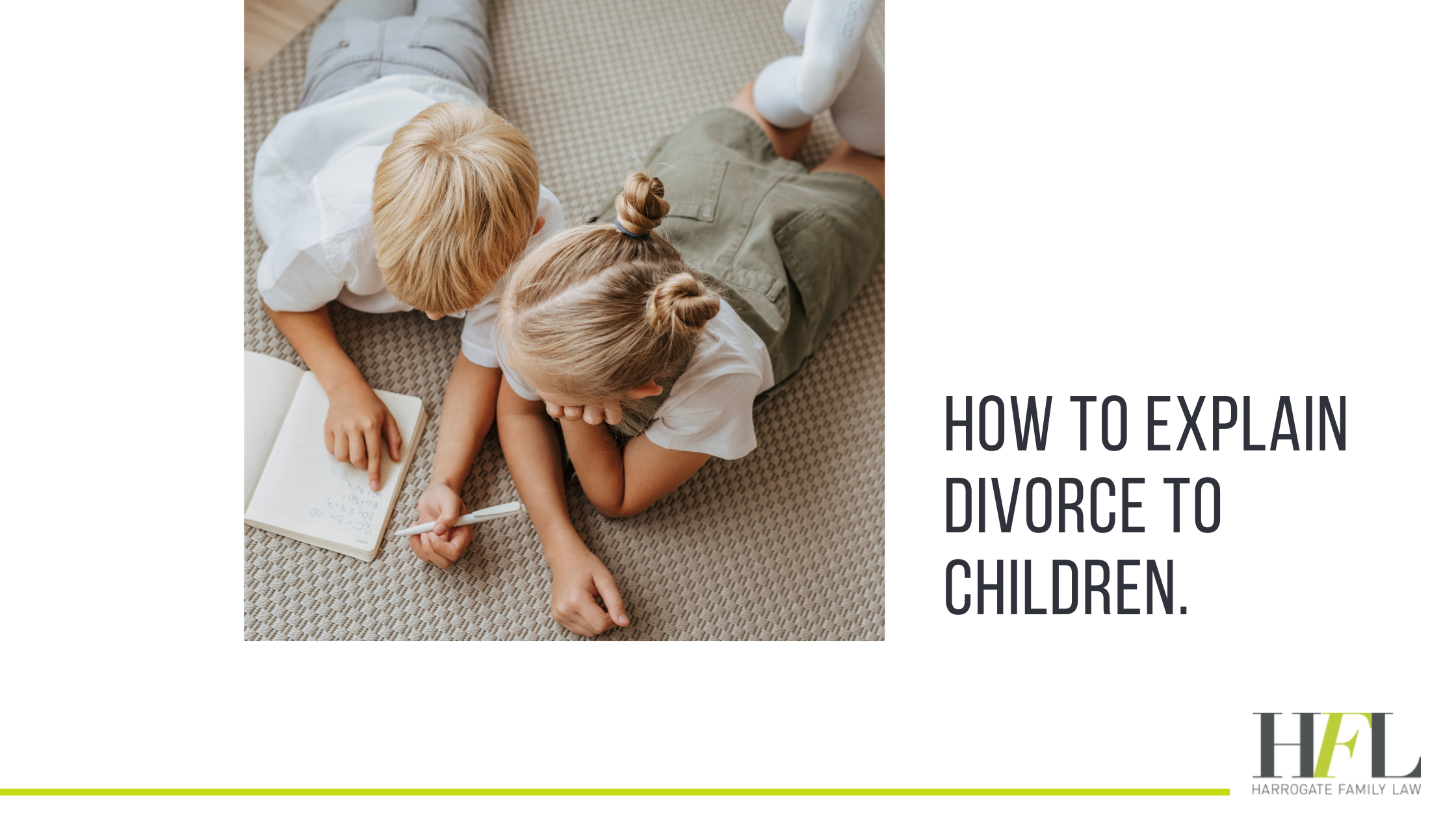No matter how amicable or straightforward your divorce is, explaining separation to children is never an easy conversation to have. But neither is it one to avoid.
Divorce can take a big emotional toll on the whole family, and its impact should never be overlooked. As a parent, there are ways in which you can minimise any distress and anxiety that your children might be feeling, and things you can do to ensure that their emotional needs are being met.
Keep conflict to a minimum
Whatever the current arrangements are with your ex, maintaining a united front (where possible) for your children is vital. It might sound obvious, but never put them in the middle of a dispute, or make them feel as though they have to choose between you, as this can cause them real emotional turmoil, no matter their age.
It’s also important to avoid bickering and fighting in front of your children, or bad-mouthing one another, as this can make an already distressing situation much worse.
Present a united front
Whether the decision to separate was taken as a couple or individually, if it’s possible to work together when telling the children, it’s a good approach. Hearing a consistent message from you both will provide them with a sense of security at a time when the future looks very uncertain.
Choosing the right moment to have this conversation is also something you should consider carefully. Think about where your children will feel the most comfortable, and what they’ll need once they’ve been told. They may want to be in a place where they’re free to display their emotions and have space to take some time out if they need it.
Of course, this is very often easier said than done if you’re separating from a narcissistic spouse or partner, or if domestic violence has been a feature of your relationship. If this is the case, having expert legal advice to help keep things on the right track, and manage any challenges when it comes to the arrangements for the children, will be a worthwhile investment.
Have a plan
Before you embark on the conversation with your children, try to anticipate some of the questions they might have. Whilst it’s impossible for you to have all of the answers, any information you can give them about what the future looks like will be helpful. Will they remain at the same school for example? Is a move from the family home likely to happen? Who will they live with?
If things are really up in the air, for whatever reason, just be sure to listen, provide reassurance, and encourage them to be open about their feelings and to ask questions. Your children need to know that the divorce or separation isn’t their fault, and that no matter what happens, they are loved.
Don’t overshare
When talking to your children about your separation or divorce, think about what they need to know. This isn’t an opportunity for you to get things off your chest, but rather a chance to help your children understand the changes that will be happening and what the future looks like for them.
Conversations about money and financial settlements can be contentious, as can discussions around infidelity or other factors of ‘blame’, and are therefore not really appropriate for your children to be a party to.
Ultimately, going through a divorce is always difficult to navigate, and it’s tempting to confide in your children as you process your emotions and come to terms with such a big life change. However, always consider what your children are emotionally equipped to deal with, and remember that it’s not their job to provide you with emotional support. Instead, arrange to see a close friend or family member, or even a counsellor or therapist who can help you work through your feelings.
Be honest
Although you should avoid oversharing, it’s also important not to keep your children in the dark. Finding the balance between protecting their well being and being honest can be difficult. Keep in mind the age of your children, and their level of understanding. What do you think they need to know in order to help them process what’s happening?
All of these things will develop your child’s trust and create a healthy family environment as you all go through this together.
Going through a divorce can be challenging, but it isn’t something you have to experience alone. If you’re struggling or worried about financial settlements or arrangements for children, get in touch with our friendly team. Harrogate Family Law has a wealth of experience in dealing with complex financial matters, pensions, and narcissist partners. Don’t hesitate to contact us.






